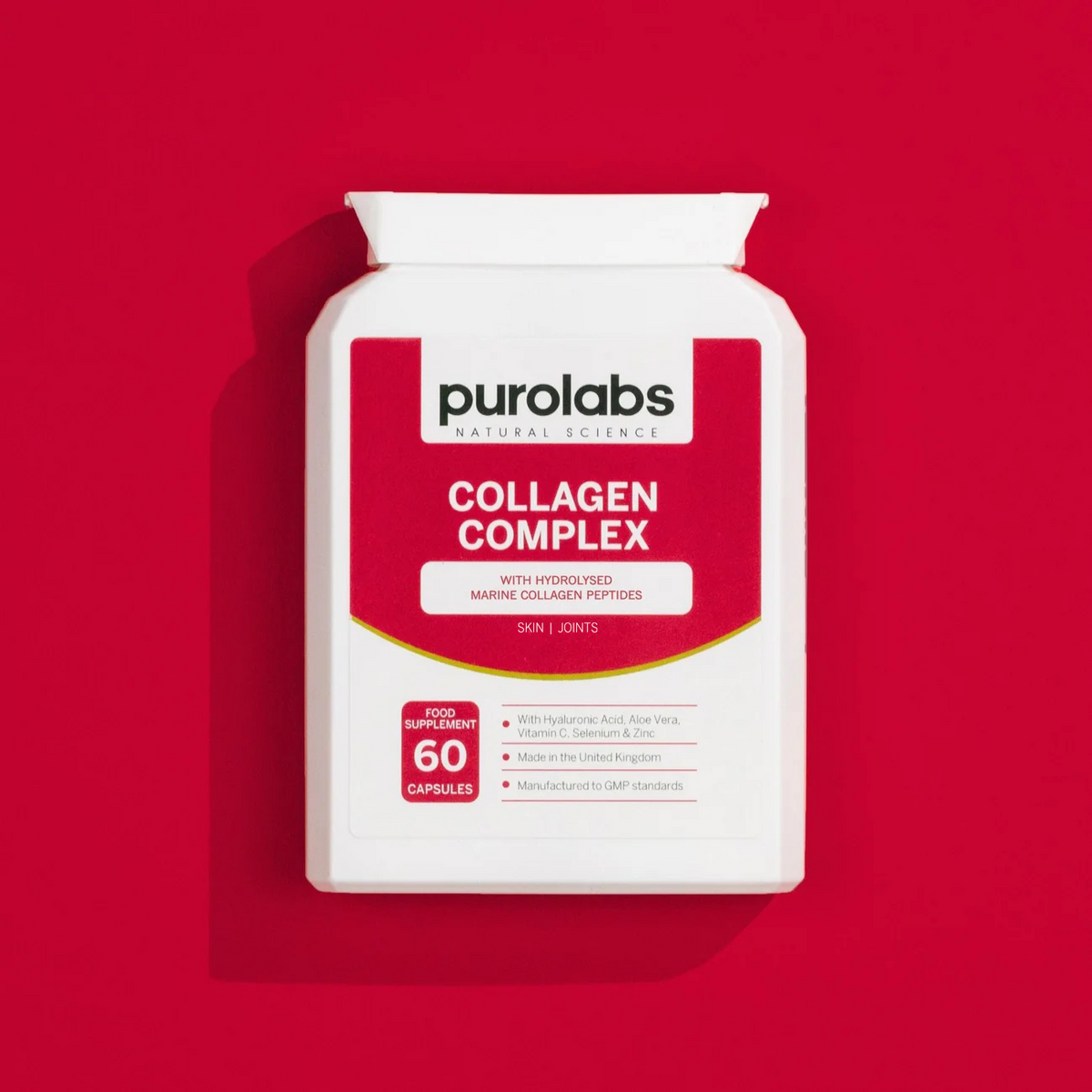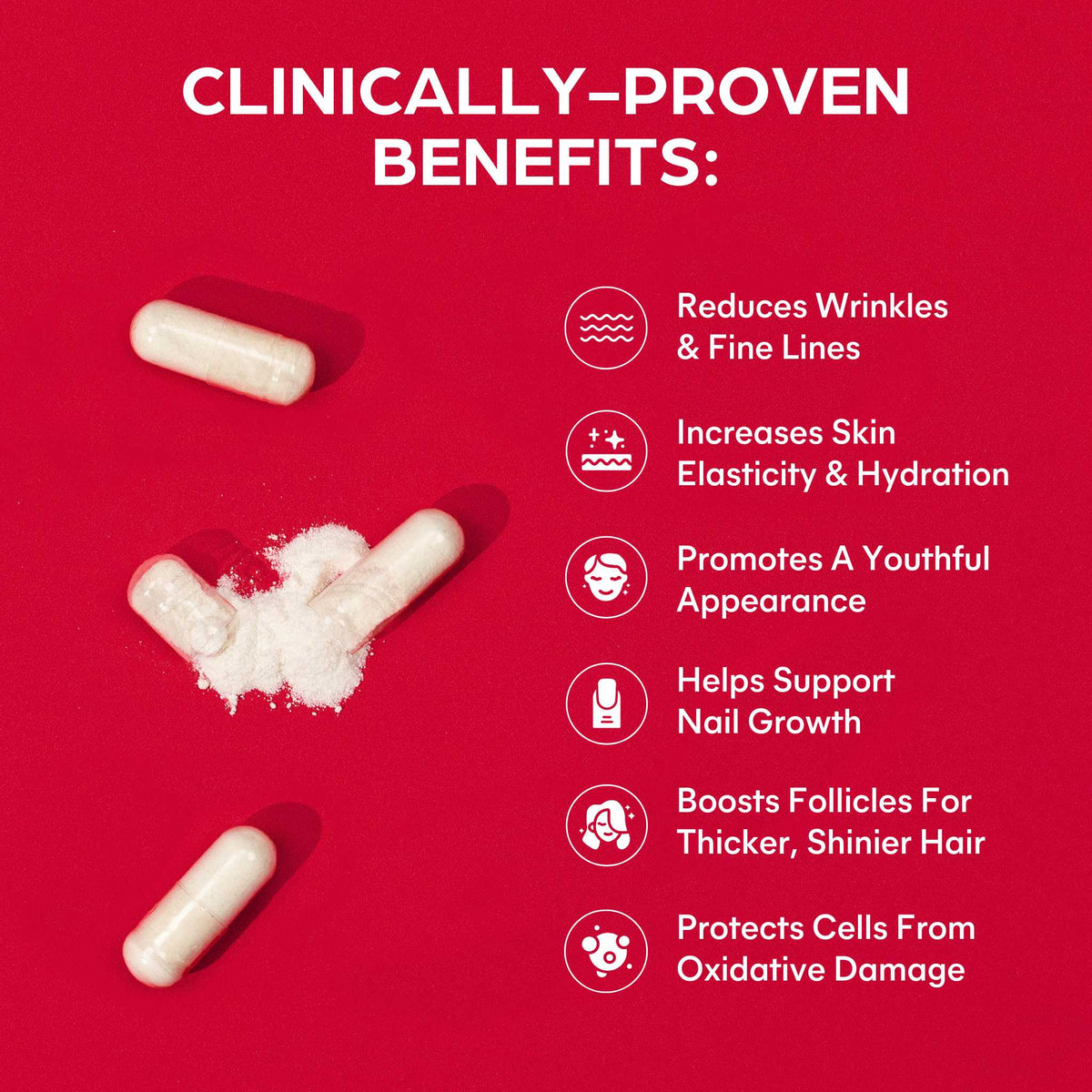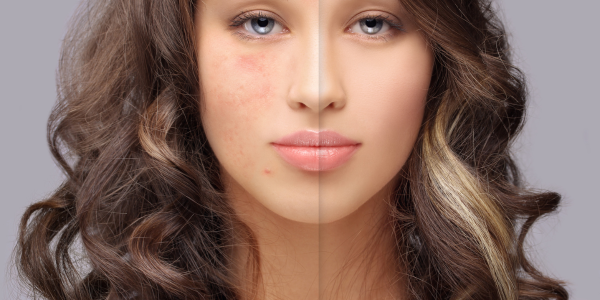Acne is one of the most common skin conditions affecting up to 95% of adults aged 11 to 301. Acne can vary from mild to severe. Although it is an ‘aesthetic’ condition, it can severely impact the self-esteem of the individual experiencing it.
We also typically think of acne as a condition that suddenly disappears after adolescence. However, gradual and perpetual increases in stress, hormonal imbalances, and toxin exposures that modern living brings have led to a jump in reported cases of adult acne well beyond teenage years.
What makes acne so confusing and frustrating is that many sufferers can’t pinpoint the contributing factors which trigger their acne breakouts. If you have had acne for years, you’ll understand that a perfectly executed skincare routine and drinking plenty of water may help to improve symptoms, but it rarely heals acne.
It is important to remember that the human body is a series of interconnected systems that influence each other to promote health or perpetuate disease. Our skin, the largest organ in (and on) the body2, is connected to many of our organs, which need to be considered to determine the root cause of what may be driving your acne.
As acne is multifaceted and complex, if you have been suffering from persistent or severe acne for years, then I highly recommend seeking a specialist to identify root causes and to formulate a personalised plan of action.
The following tips are for those who have tried or are trying a conventional route to treating their acne but are also exploring more holistic approaches. These can also be used to soothe and support other types of inflammatory skin conditions such as rosacea, eczema and psoriasis and is a good starting point:
1. Reduce Inflammation
Acne is an inflammatory skin condition3, therefore, adapting your diet and lifestyle to include more daily elements to help reduce the inflammatory load is a great start.
One tip that will help decrease inflammation is to add more colour to your meals. Aim for three to four different colours when preparing each meal. Different coloured produce contains varying nutrients. Ever wondered why your eyes are drawn to bright and interesting colours and why a colourful plate is so enticing? The body recognises that a colourful plate of food carries a whole bunch of nutrients designed to add energy and vitality and help fight disease.
Many fruits and vegetables are antioxidants4, which help mop up free radical damage caused by inflammatory foods and lifestyle contributors. Next time you write your grocery list, remember that the brighter and richer the colour, the more potent the antioxidant content.
Aim to increase your intake of the following antioxidants5:
- Beetroot
- Berries
- Red peppers
- Avocado
- Oranges
- Sweet potato
- Turmeric
- Chilli
Consider supplementing with high-quality fish oil, which is a potent antioxidant with many studies pointing to its benefits on a whole range of inflammatory skin conditions, from acne to rosacea and eczema6. A potent fish oil is also highly recommended if you suffer from dry skin.
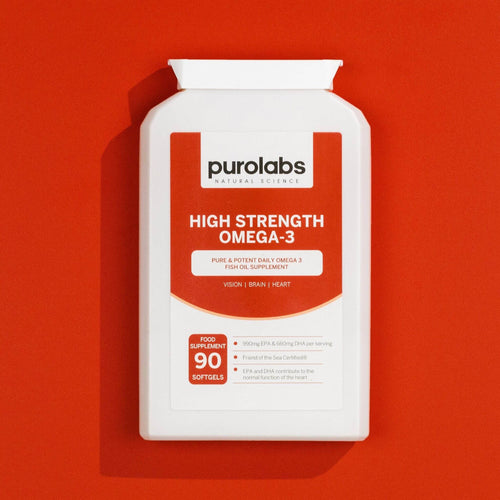
Omega-3
2. Balance Blood Sugar
Balancing blood sugar is a key element when it comes to healing acne.
Chronically high insulin levels raise IGF-1 which is a growth hormone7. High levels of IGF-1 are commonly linked to testosterone dominance that can present as acne and common hormonal conditions like PCOS.
Elevated blood glucose is also inflammatory. High insulin has been shown to increase sebum production, which leads to oily, clogged sebaceous glands, increasing the likelihood of acne8.
To help balance blood sugar, begin with the following tips:
- Eat a source of protein and fat with breakfast. An omelette with avocado, peppers and peas is a fantastic option. If you don’t have morning time, then a high-quality plant-based protein shake is another excellent choice.
- Reduce grazing throughout the day. Our blood sugar levels rise naturally as part of the digestive process each time we eat. Reduce the frequency of blood sugar rises by eating three filling meals daily without regularly snacking in between.
- Consider supplementing with apple cider vinegar before large meals.
- Reduce processed food intake, which contains added salt, sugar, refined oils and preservatives, which will sky-high your blood sugar levels.
- Swap your ‘white’ carbohydrates for ‘brown’, i.e., swap white rice for wholegrain rice.
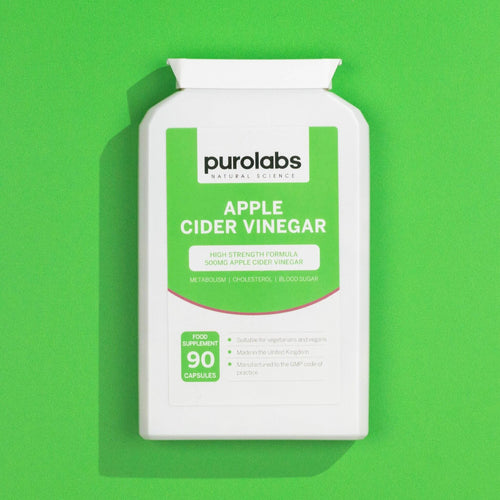
Apple Cider Vinegar
3. Address Hormonal Imbalances
Hormones work together to maintain homeostasis, aka ‘balance’. Too much or too little of one hormone can impact how another is absorbed and utilised, with too little oestrogen or too high testosterone commonly linked to acne.
Consider adding probiotics to your daily supplement regime to help boost oestrogen levels, as oestrogen is metabolised by good gut bacteria in the gut9.
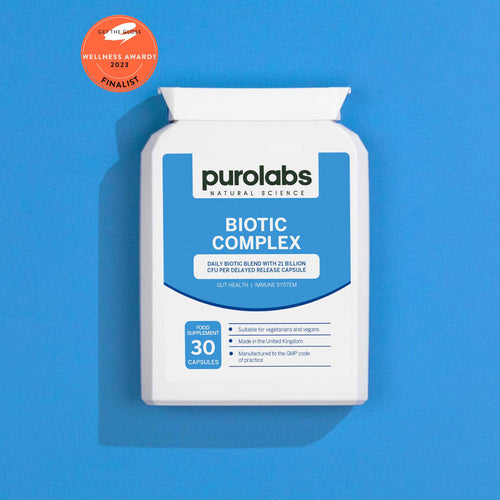
Biotic Complex
It is also vital to ensure that you are having regular bowel movements as excess hormones are excreted through your stool. Probiotics are fantastic for helping regulate bowel movements and increasing fibre intake10.
High fibre foods include:
- Oats
- Wholegrains
- Sweet potato
- Kiwis
- Avocado
Stress reduction is also vital when it comes to balancing hormones. Chronic stress leads to chronically elevated cortisol levels, impacting our ability to utilise our other hormones effectively. Ensure that you take a little time each day to focus on self-care, a short breathing exercise, or take a walk outside to help balance cortisol levels11.
4. Boost Gut Health
Many of the tips in this article improve gut health, such as increasing fibre, balancing blood sugar and adopting daily stress reduction exercises.
The gut and the skin are linked via the gut-skin axis, meaning that an unhappy imbalanced gut increases bad bacteria12. Bad bacteria expel toxins which escape our gut, travel throughout our body, and exit via one of our bodies detoxifying organs – our skin.
This is especially common when our body’s main detoxifying organ, our liver, is overwhelmed through poor nutrition and lifestyle choices.
5. Hydration
Yes, it may be seen as a basic tip and drinking enough water alone, especially if you have moderate to severe acne, will not heal it.
However, it is crucial to cover the basics to work on the specifics of your particular skin woe. I have seen clients who have tried specific supplements and eaten specific foods but haven’t covered elements such as drinking a minimum of 1.5 litres of water daily, reducing processed foods and improving sleep quality. My general rule of thumb is to start with the ‘easy’ wins and build from there.
As mentioned, if you have tried the conventional route or you’re considering tackling your skin from an ‘inside out’ approach, speaking to a functional skin practitioner can help you get to the root cause of your acne and finally heal it for good.

 Beauty
Beauty
 Bone Health
Bone Health
 Brain Health
Brain Health
 Energy
Energy
 Eye Health
Eye Health
 Gut Health
Gut Health
 Hair
Hair
 Hormonal Health
Hormonal Health
 Heart Health
Heart Health
 Immunity
Immunity
 Joints
Joints
 Menopause
Menopause
 Pregnancy
Pregnancy
 Kids
Kids
 Sleep
Sleep
 Stress & Mood
Stress & Mood





